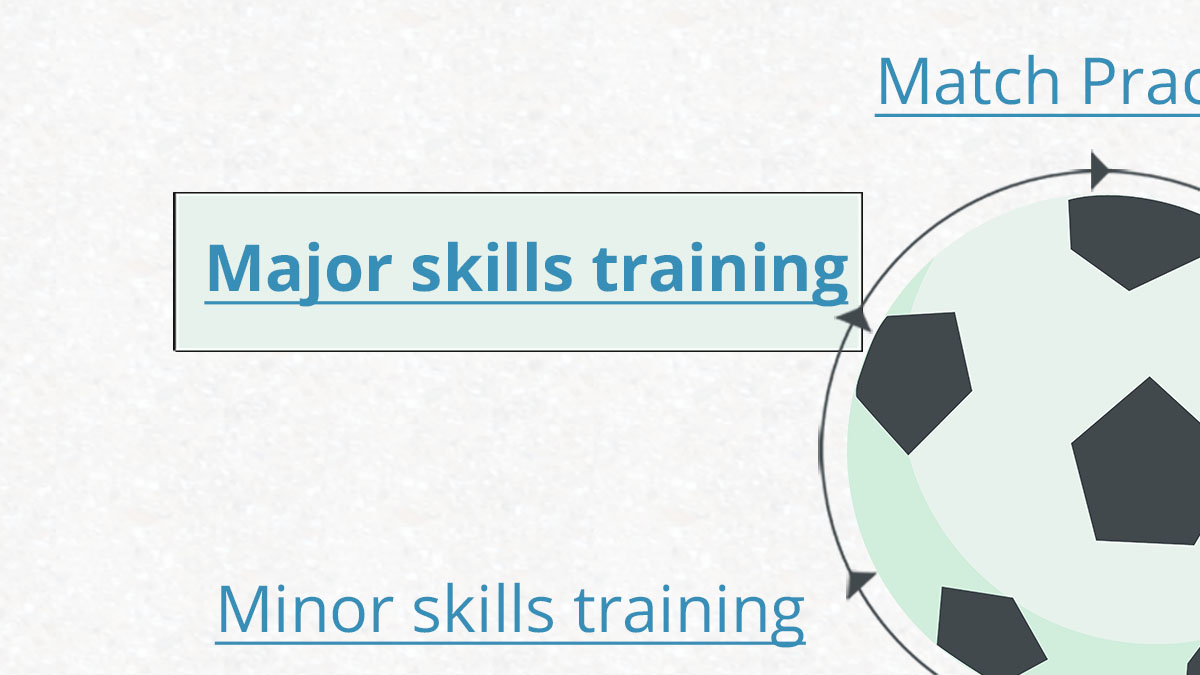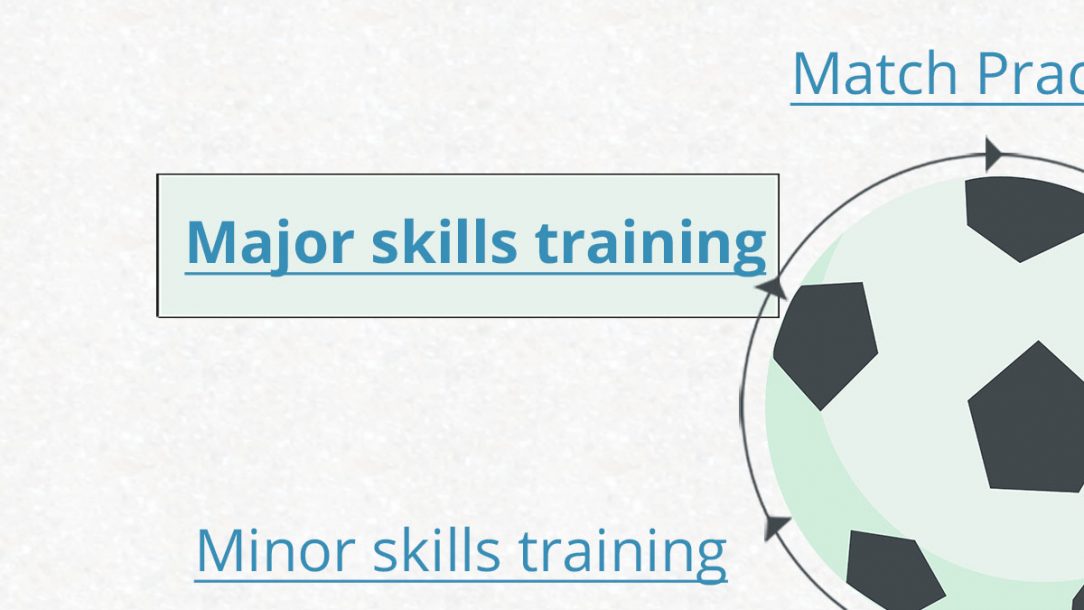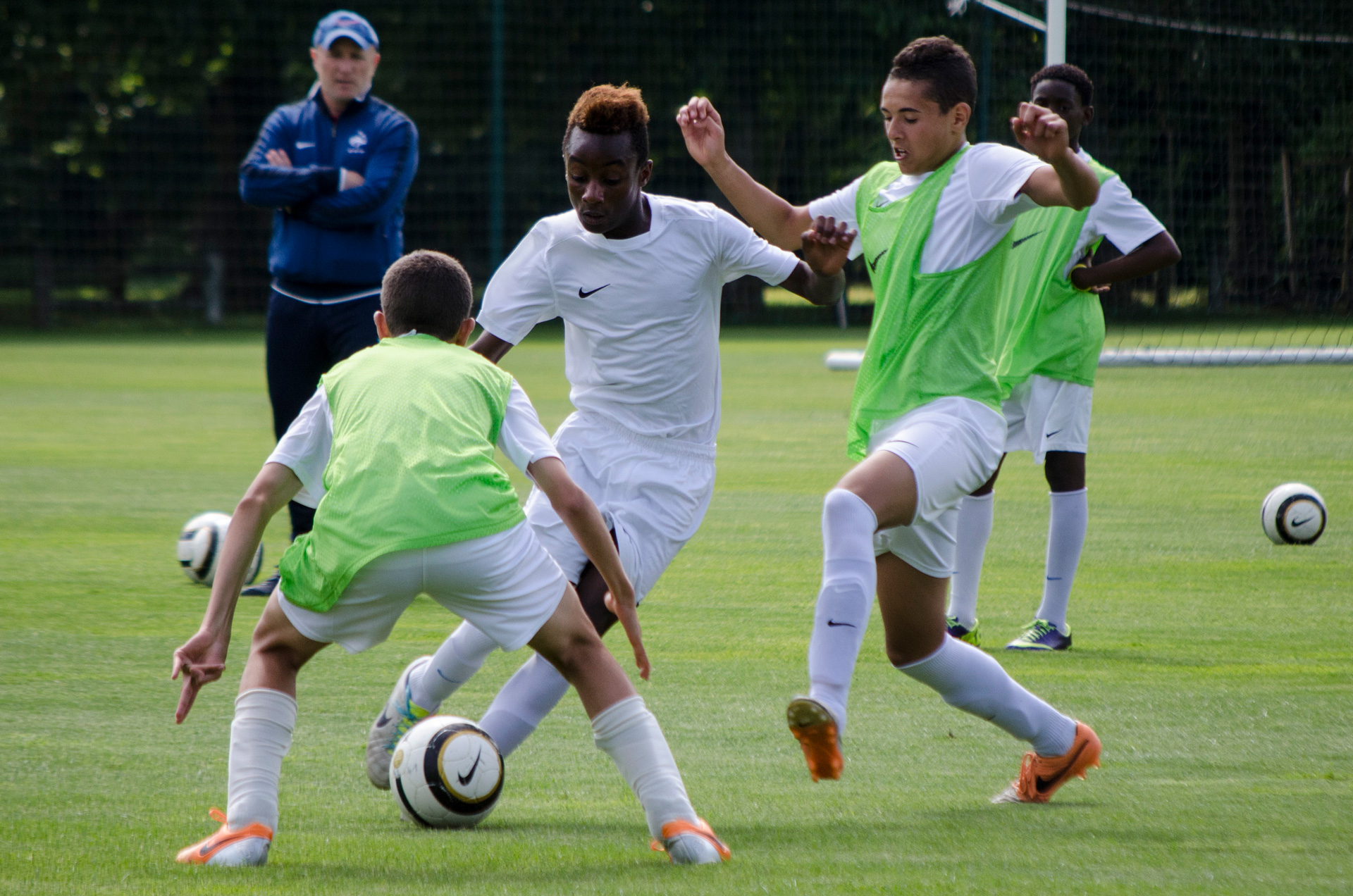
Illustration: Giske Defending.
The majority of football players at both the amateur and professional level invest most of their training time in skill training exercises.
Major skills training is high functionality training in which you practice using your skills in situations that mirror those you will encounter in matches; i.e., under pressure to perform in the presence of the competitor.
Sometimes, this training may be conducted at the team level, while other times it may focus on the technical aspect of play; e.g., defending in 1v1 situations.
The objective of the coach during major skills training sessions is to teach players and the team as a whole to practice using their skills and working together in a competitive environment. He or she will use a range of different training methods, one of which is repetition. Both random and fixed series repetition techniques will be employed in combination with variation to prepare the players for applying their skills in predictable and unpredictable match situations. Variety is important for motivation, concentration and learning or refining skills. There are also several ways to create variation.
Major skills training is high functionality training in situations that mirror those you will encounter in matches.
Every footballer knows that reps are important to achieving progress and mastering new skills.
Every footballer knows that reps are important to achieving progress and mastering new skills. However, there are many different ways of executing these reps both in relation to the number of sets and the conditions.
However, regardless of what skills you practice and what approach you take, you have to think about priorities, time limitations and the match (which is ultimately what you’re training for). It is always important to have the specificity principle in mind.
Your Mental Processes and the Choices You Make.
In any given game, you will go through the following process; Observe – Assess – Decide – Act. This implies:
- Choice of solution (what to do)
- Choice of technique (which way to do it)
- Timing (when to do it)
- Technical execution (how to do it)
However, regardless of what skills you practice, you have to think about priorities, time limitations and the match.
Football is a simple game. It’s easy to learn but difficult to master.
Even after many years of training, there is always a lot to learn. The players who really stand out are those who delve deeper and deeper into the skills and techniques of the game and who invest time in studying what it takes to be a great player in a match situation.
Many different factors affect performance, and there are numerous things to focus on in any given training session. Every player has one skill area that perhaps needs more emphasis than the others, but how do you establish what this is?
The players who really stand out are those who delve deeper and deeper into the skills and techniques of the game.
When assessing what skills and techniques you should focus on in your own training plans, it is worth asking yourself some basic questions.
I have presented some ideas for the type of questions you should consider posing below. For ease of reference, I have divided these into nine skill categories that are important when engaging in defensive play.
1. Cognitive Skills
Questions about orientation skills and how you retrieve important information from the environment:
- How effectively can you assess the environment before crosses are played? Do you focus on the ball, opponent(s), or both?
- When you practice orientating yourself in advance of play, do you do this consciously or unconsciously?
- Do you ever experience difficulties locating your teammates and the “offside-line”?
When assessing what skills and techniques you should focus on, it is worth asking yourself some basic questions.
2. Situation Assessment
Questions related to selection and 1v1 skills:
- Do you find it challenging to read situations and anticipate the player’s next movements while marking?
- When marking, do you find it difficult to keep track of the attacking player’s position, movement and posture while also focusing on the ball?
- How aware are you of the various choices the attacker may have in a given 1v1 situation?
Once you have responded to each of these questions, consider adding your own questions to develop your own game.
3. Strategy
Questions related to situational choices:
- In the heat of the game, do you find yourself following a conscious plan or simply reacting to the action as it unfolds on the pitch?
- What are your strengths in this area? How do you think you could get even better?
- In what situations are you are struggling to make the right decision when presented with different options? What is the reason behind this?
4. Defending Position
Questions related to your preferred technique in 1v1 situations:
- What tactics do you usually use to win 1v1 duels?
- Which defending position do you prefer? Which defending position is best aligned with your strengths?
- What defending positions are you familiar with? What defending skills do you need to master to develop your repertoire?
5. LFT (Leg, Feet, Torso) Quality
Questions about your working conditions in 1v1 situations:
- How wide is your leg position?
- At what angle do you typically position your feet – parallel or angled?
- What torso position do you typically adopt?
6. Space and Distance
Questions about distance assessment and the blind zone:
- Do you have good control of the important spaces around, and especially behind, you? How is your positioning game?
- Do you find it hard to find and maintain optimum distance to the attacking player in 1v1 situations?
- Do you ever think of the blind zone when marking? If you do, do you feel you have control of it?
7. Time and Timing
Questions related to defence skills in general:
- Do you usually enjoy the game and feel like you are in control, or do you usually feel like you are often in arrears?
- How is your position and offside play?
- How good is your timing when tackling other players?
8. Defence Skills
Questions about the strengths and weaknesses of your defence skills:
- What are your strengths and what are your biggest challenges?
- How is your tactical and technical 1v1 repertoire?
- How high is the quality and stability of your footwork?
9. Communication Skills
Questions about skills and body language related to positive and negative communication:
- In what situations do you communicate well with teammates? In what ways do you think your communication could be improved?
- How do you typically behave when your team is losing or has lost? Do you give away your emotions with your body language?
- In what ways do you help your teammates when they are struggling?
I hope you will find these questions useful when you reflect on your defensive play and contemplate how you can improve your game.
Once you have responded to each of these questions in detail, consider adding your own questions to develop your own game or that of others.


